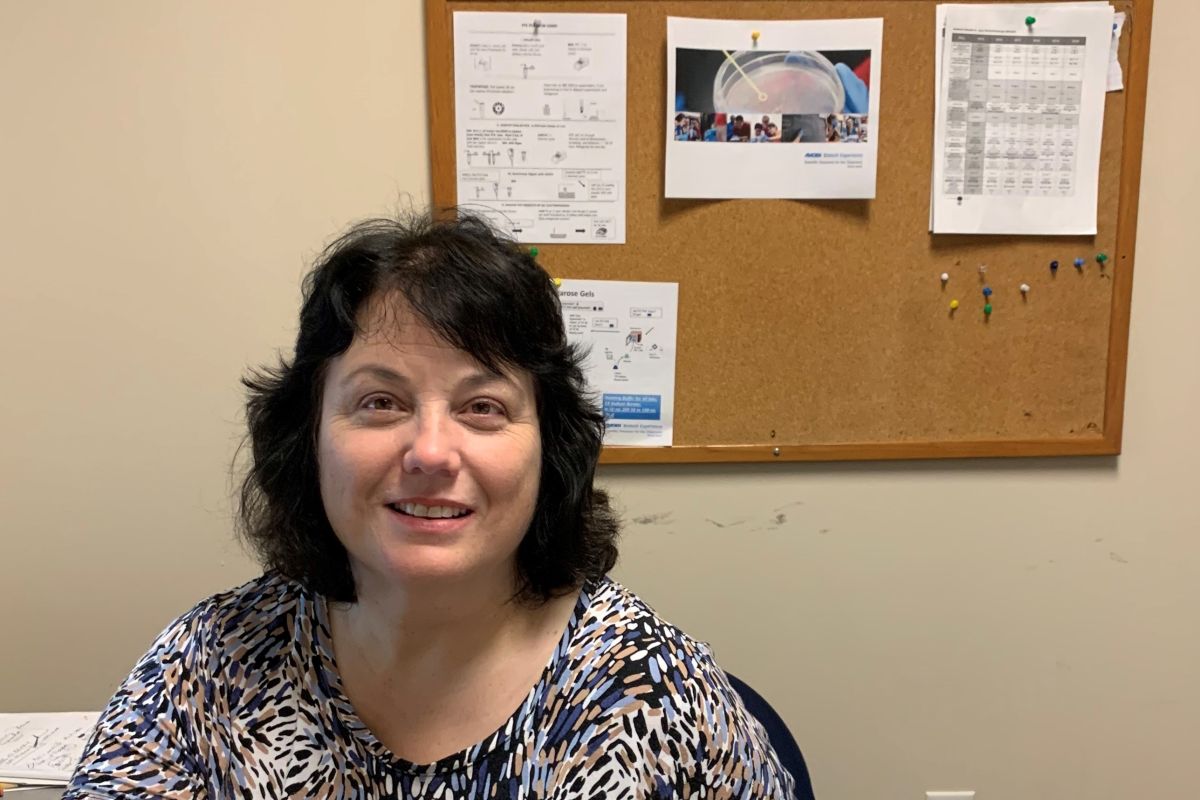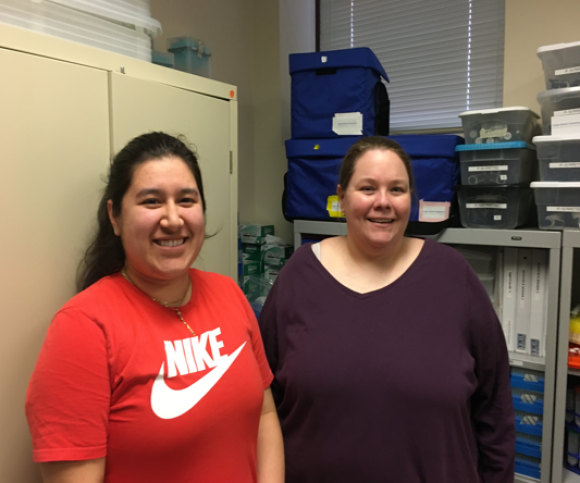As school systems across the United States continue to adapt to the new challenges posed by the COVID-19 global pandemic, Amgen Biotech Experience (ABE) staff and teachers continue to find creative ways to advance their mission to bring hands-on science to their students. In Rhode Island, teachers are using a combination of virtual platforms such as LabXchange and ABE lab kits in schools offering hybrid in-person classes.
“A recent option is to ‘demo’ the kit for the in-person class and simultaneously record for virtual students,” says Doreen Osgood, director of the ABE Rhode Island site and a biology professor at the University of Rhode Island. “I am a strong believer in hands-on experience for any lab-based field. From my personal education experience, lab skills were something I needed to develop and seek on my own.”

Indeed, Osgood ’s own career path has taken her from lab research to the biotech industry and then back to academia where she both teaches and helps empower regional high school students with their own lab skills. “Ever since I can remember, particularly with my first microscope I received as a kid, I always wanted to work in a research or medical lab,” she says.
Osgood pursued biology for her undergraduate degree at Providence College, then received a master’s in microbiology from University of Rhode Island, and a PhD in nutritional biochemistry from Tufts University. She began working in a clinical lab during her graduate work and also worked as a research assistant at Tufts before getting her PhD.
The need to bridge her academic career with the biotechnology industry led to Osgood’s employment as a senior analytical scientist at Molecular MS Diagnostics, a small start-up preclinical testing company. Eventually, eager to transition back to an academic atmosphere, she became an adjunct professor at Community College of Rhode Island and the lab instructor and lab program manager for the University of Rhode Island biotechnology undergraduate program. Now a clinical assistant professor there, she has also been working with ABE since 2017, first as a coordinator and lab technician and now as the director and co-coordinator of the Rhode Island site.
During that time, the site has changed and grown considerably, she says. “Since I have been with ABE Rhode Island, we have added at least one new school each academic year and expanded to more teachers at the same school.”
Other changes include regular professional development institutes each summer, the new PCR lab, and a resource binder for teachers to assist with lab setup. “Having resources for each kit in one location became a big hit with the teachers,” she says, “as it allows teachers to quickly locate valuable information on safety, preparation, setup, and pictures of expected results.”
Another recent accomplishment has been launching a new website this past summer, thanks to the work of their new coordinator, Jessica Nava. A recent graduate at the University of Rhode Island in biotechnology, Nava had been a student undergrad assistant for ABE Rhode Island for 3 years. In August 2020, she agreed to stay on as the full-time program site coordinator.
“I decided to stick with the ABE program because I enjoy what I do,” Nava says. “Teachers come to us for training, and we help them understand each lab we provide them in their kits. Knowing that they are able to perform the lab with their students and obtain results shows us that we have done well in training our teachers.”
Looking to the future, a major goal in Rhode Island is to keep communicating with each school on the best method to deliver the ABE labs. “We are also looking into new ways to outreach to the school,” Osgood says. “We have visited schools virtually to talk about pursuing biotechnology as a major in college. We have a current student and former student share their experiences. This approach accomplishes two goals: It introduces our college program and introduces ABE to the high schools not involved or aware of the program.”
Osgood is grateful to the ABE Program Office for its support, as well as the inspiration and comradery from other program sites, such as Massachusetts. “I continue to be impressed by the growing resources available,” she says.
Osgood sees the benefits of ABE firsthand as a professor. “I find students who participated in ABE Rhode Island have a smoother transition into these classes due to their advanced lab skills and biotechnology information base,” she says. “Having lab skills introduced early in high school allows students to test the waters in a future biotechnology major and prepares them for college lab classes.”
